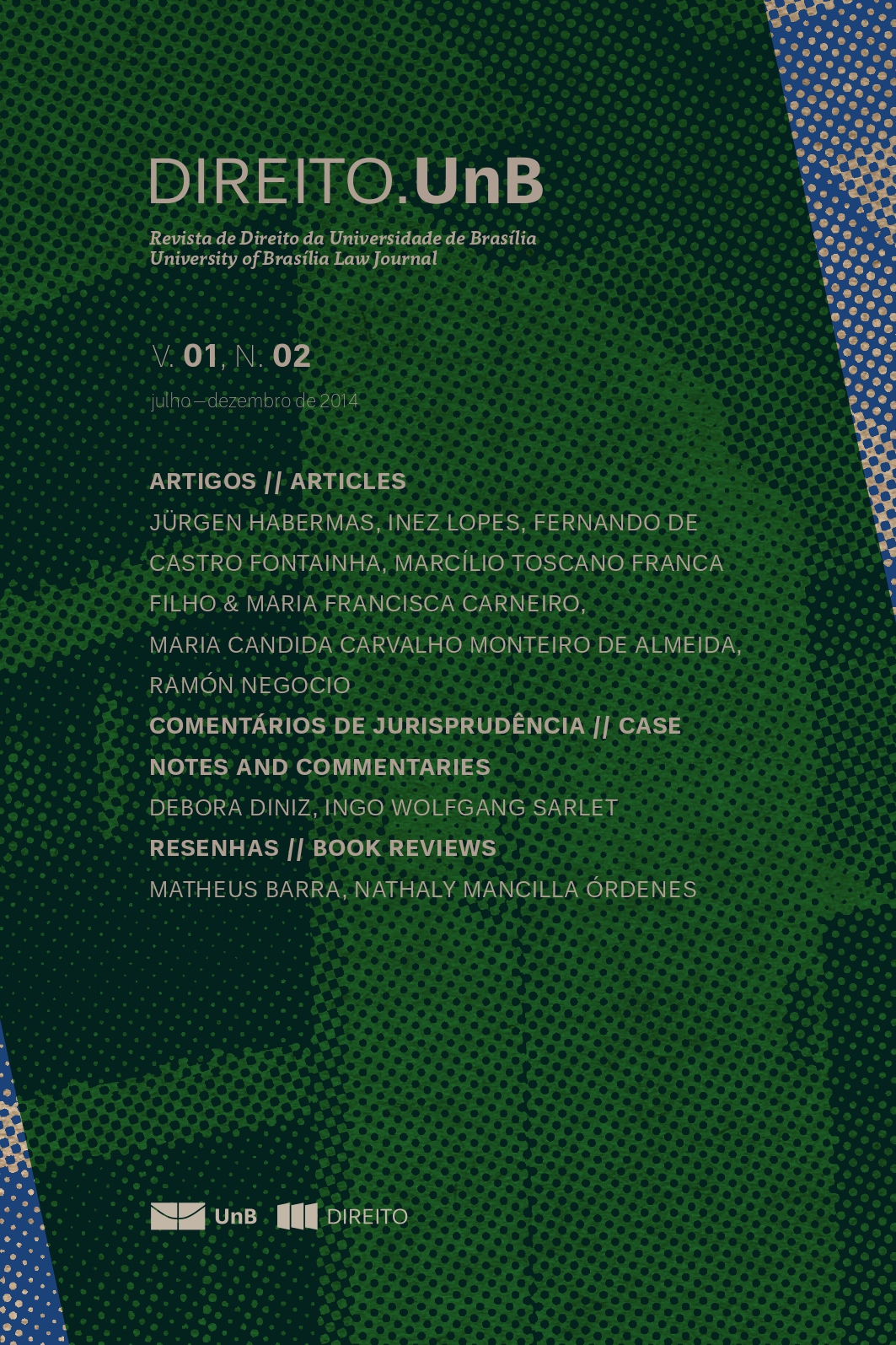Dispute settlement body of the WTO: access to developing countries?
Keywords:
World Trade Organization, Dispute Settlement Body, Multilateral Trading System, Access to jurisdiction. EffectivenessAbstract
This article aims to analyze the importance of the Dispute Settlement Body (DSU) of the World Trade Organization (WTO) as mechanism for maintaining the multilateral trading system at the global level, in particular as regards access to the jurisdiction by member states. From the quantitative and qualitative analysis, the paper examines the performance of countries at different levels of development and seeks to demonstrate that existing asymmetries in the international trade rules and your reflexes to the OSC. Despite major advances in the creation of a permanent forum to address trade disputes between member states, it appears that developed countries and developing high-and middle-income countries are the biggest beneficiaries. Access to the jurisdiction of the WTO by the least developed countries is an improvement, but, paradoxically, also a denial of the full efficiency of the system, as will be seen ahead. The article also highlights the most active countries and agreements that are put in check before the OSC and the participation of Brazil as a global player in the logic of economic globalization. Finally, attempts to show why reform or revision of the system is essential for the OSC guarantees the right to the principle of special and differential treatment, especially to less developed nations, and promote greater equality between members, resolving conflicts in a more equitable manner.
Downloads

Downloads
Published
How to Cite
Issue
Section
License
Copyright (c) 2014 Direito.UnB - Law Journal of the University of Brasília

This work is licensed under a Creative Commons Attribution-NonCommercial-NoDerivatives 4.0 International License.
Autores que publicam na Revista Direito.UnB concordam com os seguintes termos:
- Autores mantêm os direitos autorais e concedem à revista o direito de primeira publicação, com o trabalho simultaneamente licenciado sob a Licença Creative Commons - Atribuição-NãoComercial-SemDerivações 4.0 Internacional que permite o compartilhamento do trabalho com reconhecimento da autoria e publicação inicial nesta revista.
- Autores têm autorização para assumir contratos adicionais separadamente, para distribuição não-exclusiva da versão do trabalho publicada na Revista Direito.UnB (ex.: publicar em repositório institucional ou como capítulo de livro), com reconhecimento de autoria e publicação inicial nesta revista.
- Autores têm permissão e são incentivados a publicar e distribuir seu trabalho online (ex.: em repositórios institucionais ou em suas páginas pessoais) a qualquer momento após à definição do processo editorial.
- Autores concordam que, eventualmente, seus trabalhos poderão ser agregados pela Revista Direito.UnB às bases e sistemas de informação científica existentes (indexadores e bancos de dados atuais) ou que existam no futuro (indexadores e bancos de dados futuros). Os detentores dessas bases de dados terão a possibilidade de realizar as seguintes ações sobre o artigo:
- Reproduzir, transmitir e distribuir o artigo, no todo ou em parte sob qualquer forma ou meio de transmissão eletrônica existente ou desenvolvida no futuro, incluindo a transmissão eletrônica para fins de pesquisa, visualização e impressão;
- Reproduzir e distribuir, no todo ou em parte, o artigo na impressão;
- Capacidade de traduzir certas partes do artigo;
- Extrair figuras, tabelas, ilustrações e outros objetos gráficos e capturar metadados, legendas e artigo relacionado para fins de pesquisa, visualização e impressão;
- Transmissão, distribuição e reprodução por agentes ou autorizada pelos proprietários de distribuidoras de bases de dados;
- A preparação de citações bibliográficas, sumários e índices e referências de captura relacionados de partes selecionadas do artigo;
- Digitalizar e/ou armazenar imagens e texto de artigo eletrônico.





